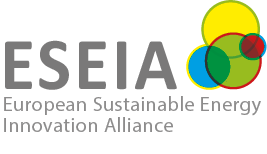Energy Takes Center Stage at the World Economic Forum 2025
The World Economic Forum Annual Meeting 2025 placed a strong emphasis on energy security, the role of artificial intelligence (AI), and the evolving global energy landscape. While sustainability has traditionally been the dominant theme in energy discussions, this year saw a growing focus on meeting rising energy demand and ensuring economic competitiveness.
Key Takeaways:
- The Energy Transition Continues – Despite policy shifts, including the new U.S. administration’s energy directives, industry leaders at Davos reinforced that the transition to clean energy remains unstoppable, driven by economic and business incentives.
- Understanding the Complexity of the Transition – Discussions highlighted the need for system-wide transformation, integrating renewable energy, supply chain resilience, and critical mineral access to build an equitable and secure energy system.
- Collaboration Is Essential – Despite geopolitical uncertainties, public-private partnerships were a recurring theme. The European Commission launched the Global Energy Transition Forum, aiming to unite governments, companies, and investors to accelerate renewable energy adoption and energy efficiency.
- Artificial Intelligence and Energy – AI’s rising power demand was a major topic, but so was its potential to optimize energy grids, enhance renewables forecasting, and drive efficiency. The Forum’s latest report highlights AI’s dual role in both increasing energy consumption and enabling the energy transition.
With innovation and collaboration at the forefront, Davos 2025 reaffirmed that while challenges remain, the opportunities for a secure, sustainable, and competitive energy future are stronger than ever.
Image: World Economic Forum/Pascal Bitz
For more insights, visit: 4 areas of focus in energy at Davos 2025 | World Economic Forum
Contact: office@eseia.eu



